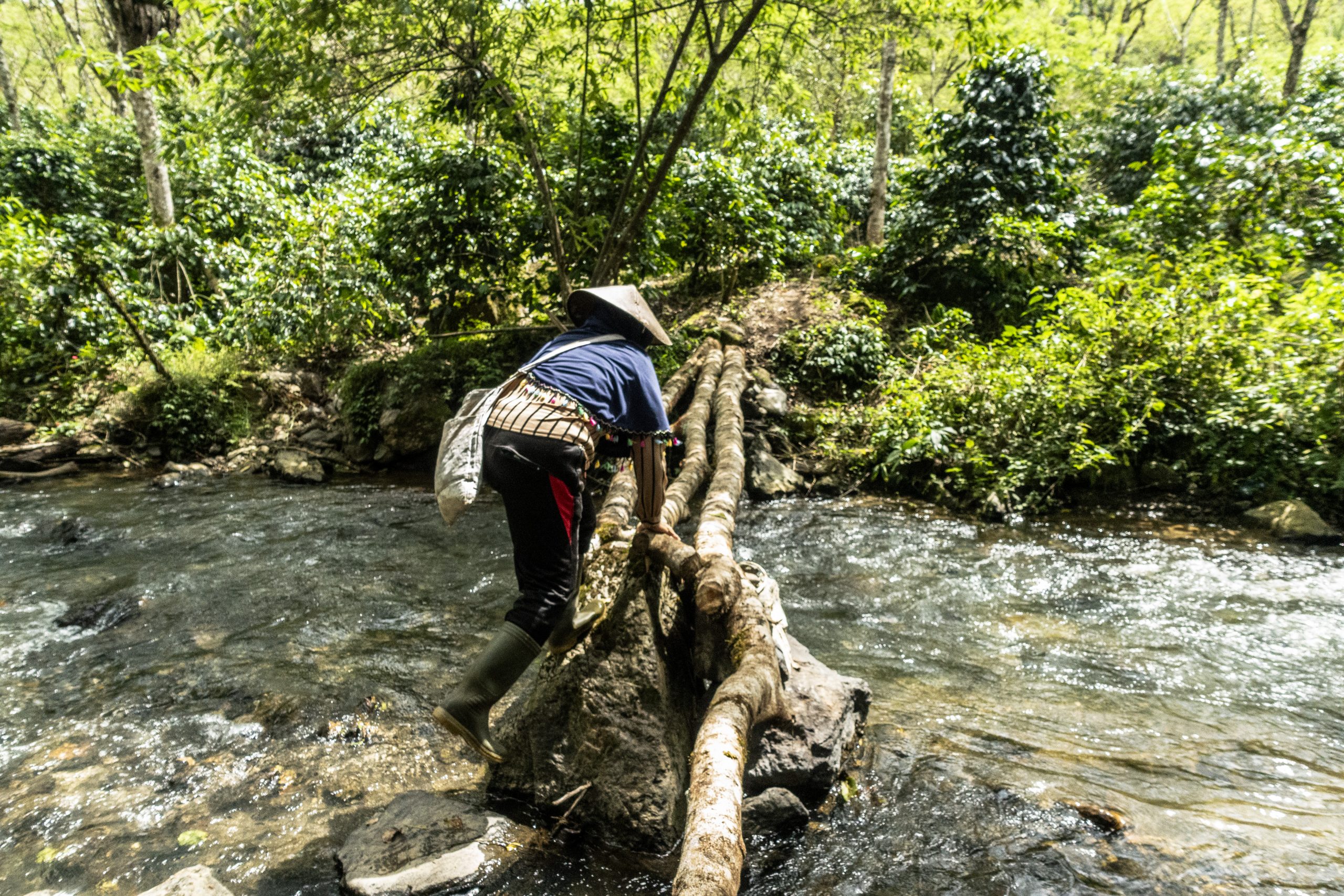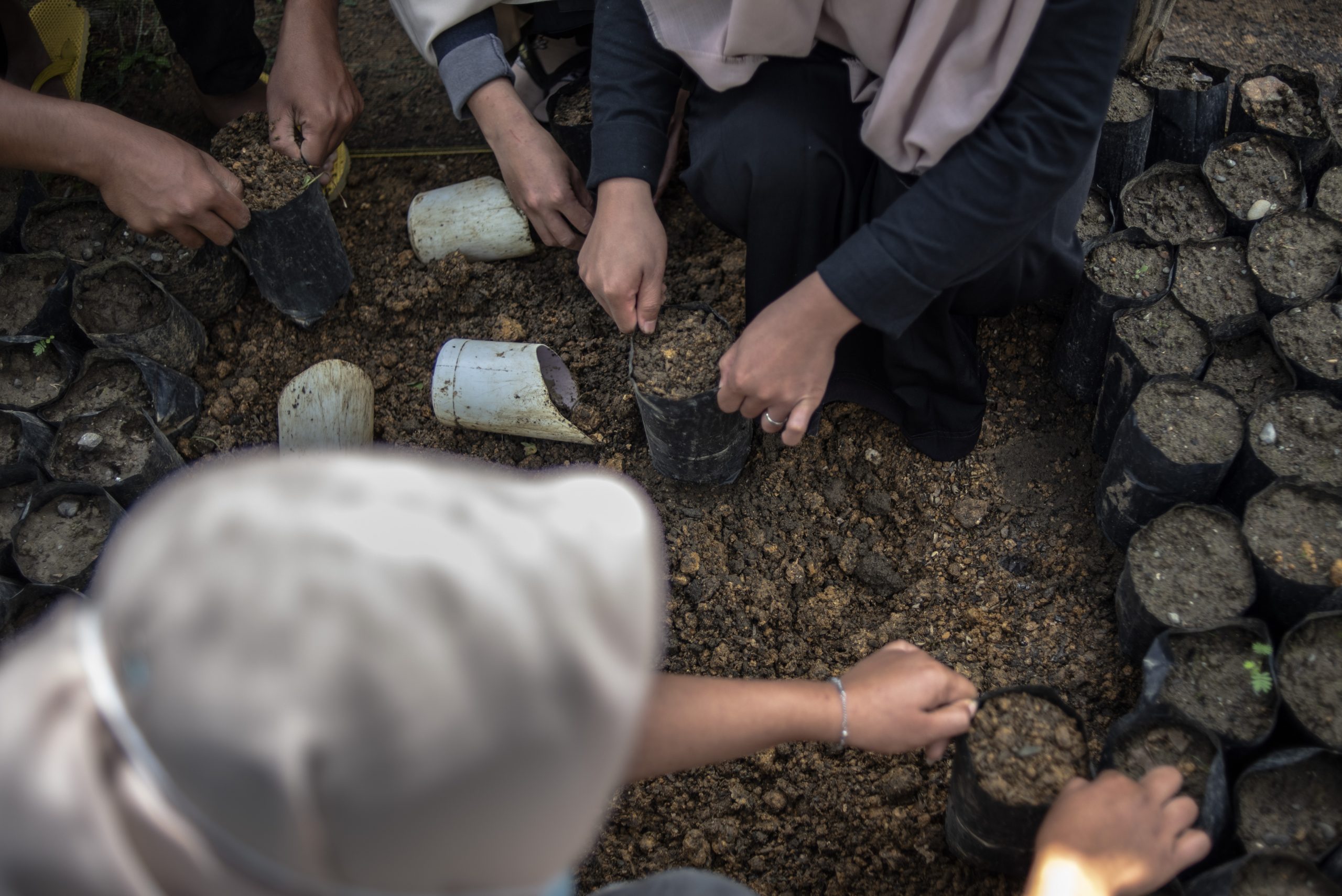Additional Resources
Climate change related events are on the rise, notably in developing countries. Producers in the Global South are increasingly feeling the brunt of climate change effects, including higher temperatures, increased rain, floods, and droughts. For millions of farming families and communities worldwide, especially those in the global south, the impacts of climate change are a daily reality.

Higher temperatures, drought, floods, extreme weather, crop diseases, soil erosion and sea water contamination threaten livelihoods and food security. All of us – consumers, retailers, traders – rely on farmers to produce the food we need to feed a growing global population. 80 percent of the world’s food comes from 500 million small-scale farms. If they suffer, we all feel the consequences. Some studies suggest that a rise of just one degree could lead to reductions of between five and ten percent in the yields of major cereal crops.
Climate change isn’t fair. Often, it’s those with the lowest carbon footprint who are hit hardest. No-one knows this better than Fairtrade farmers and producers, some of whom are already struggling with loss of land, crops and livelihood. Extreme weather and rising temperatures are already hitting the production of major Fairtrade commodities including coffee, cocoa and tea.
How Fairtrade addresses climate change?
Fairtrade’s unique, two-pronged approach helps farmers become more resilient to climate change, whilst at the same time giving consumers, retailers and traders the opportunity to reduce their carbon footprint. All this is underpinned by the Fairtrade Climate Standard.

Firstly, farmers, producers and workers can spend the Fairtrade Premium – that’s the extra money they get from sales of Fairtrade certified crops and products – on projects such as tree planting, irrigation, crop diversification and clean energy, which are more sustainable on a local level but also contribute to the global fight against climate change. Fairtrade farmers and workers decide for themselves how the Premium money is spent, because it is they who know best what they need to become more resilient.
Secondly, Fairtrade Carbon Credits – in partnership with the Gold Standard – enable farming communities in developing countries to benefit from access to carbon finance to tackle the effects of climate change. Farmers get a double benefit from Fairtrade Carbon Credits because they get a minimum price to cover the costs of setting up and running a project, and in addition they can use the Fairtrade Premium on every credit sold to invest in adaption and mitigation.
As the effects of climate change become more evident, Fairtrade producers need additional technical and financial support to confront these new challenges. Beyond the benefits that Fairtrade offers to producers (Fairtrade Minimum Price, Fairtrade Premium, strong environmental standards, etc.), the system supports basic pre-conditions that are needed to implement climate change adaptation measures such as: organizational development, environmental sustainability, financial stability, investment possibilities, and greater autonomy.
Climate Standard
Fairtrade International developed the Fairtrade Climate Standard, as a way to support smallholders and rural communities to produce Fairtrade Carbon Credits and gain access to the carbon market.
Fairtrade Carbon Credit projects enable producers to make their contribution to climate change mitigation while adapting to climate change.
The Fairtrade Climate Standard was developed in collaboration with the Gold Standard, an internationally recognized organization with expertise in climate and development projects. The Fairtrade Climate Standard is an add-on standard to Gold Standard certification of carbon emissions reductions and sustainable development benefits.
Principles underlying this Standard
- Democracy and transparency: All producer participants in Fairtrade Carbon Credit projects have a voice and vote in the decision-making process of their organization. All terms and conditions of Fairtrade transactions are detailed in contracts signed by the producers and buyers.
- A Fairtrade Minimum Price ensuring the average costs of running the projects are covered. This is an innovative addition to the voluntary carbon market, which provides a safety net to carbon projects.
- Opportunities to adapt: A Fairtrade Premium is paid in addition to the payment for the Fairtrade Carbon Credits, which goes to producer organizations, who can decide how best to invest it to make them and their communities more resilient to climate change.
- Capacity building: The Fairtrade Climate Standard offers producers a way to take a more active role in the carbon projects, through improving their climate change knowledge, developing project and carbon management skills, and taking on the running and development of their own carbon projects over time.
- Labour conditions and environment: Projects are carried out respecting Fairtrade principles related to environmental and labour practices.
- End-buyer emissions reductions: Those purchasing Fairtrade Carbon Credits at the end of the supply chain must put in place a credible plan to reduce their emissions and increasingly compensate their emissions with Fairtrade Carbon Credits.
To find out what the Fairtrade Minimum Prices and Premiums for Fairtrade Carbon Credits are, see the pricing database.

